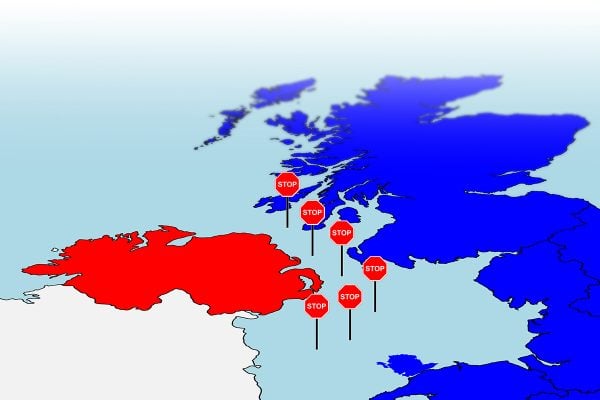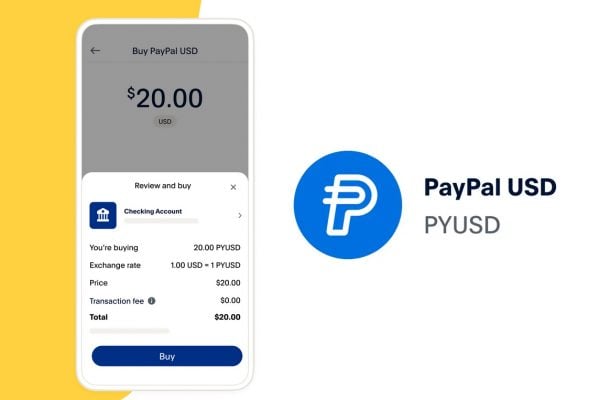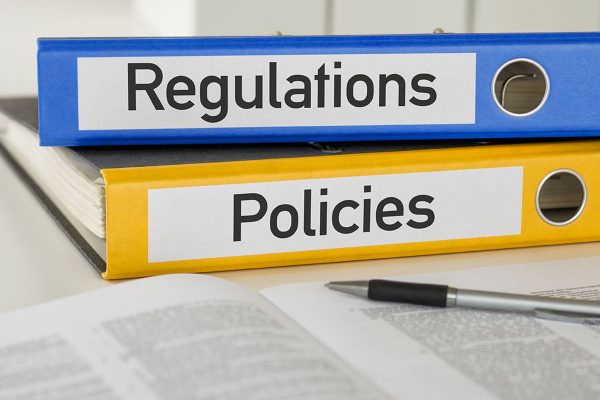 Jane Bell is one of the top eBay Specialist Consultant in Britain and provides consultancy to a host of eBay businesses. Today she looks at PayPal:
Jane Bell is one of the top eBay Specialist Consultant in Britain and provides consultancy to a host of eBay businesses. Today she looks at PayPal:
Watching BBC Breakfast news this morning, it’s been reported by Paul Lewis of BBC R4’s MoneyBox that Paypal is unable to comply with the new EU law requiring electronic bank transfers to arrive in the recipients bank account by the following day. Paypal say they will not have the system in place until later in the year so it will still take 2-3 working days for money to transfer. Paul Lewis advised people who have complaints regarding Paypal (who declined to comment on the programme) and these later payments should contact the Ombudsman. Pod cast of programme here (article 6:35 in Paypal 11:38 in)
I have to ask why Paypal didn’t get this sorted out in time and why they should be the exception to the rule of law? I can’t think of any excuse, if other financial businesses managed to sort it in time why haven’t Paypal? Oversight? This just isn’t good enough, perhaps the amount of interest they will gain by late implementation of this should be forfeited. I would be interested to see what happens on this one and if anyone claims compensation via the Ombudsman. Rather embarrassing for Paypal methinks.
Update, Monday 9th January 2012, 14:56pm.
This comment was supplied to us by PayPal today:
PayPal customers can already send money between PayPal accounts almost instantly – these payments already go well beyond what is needed under the new rules.
For payments outside the PayPal system, we’ve already implemented changes across the EU, except in the UK, that meet the new European standards for faster payments.
We are in the process of implementing Faster Payments in the UK, to allow PayPal customers to move money from their PayPal account to their bank account. Of course PayPal will only be able to use this method of transfer when the customers bank supports Faster Payments – a number of UK payment service providers are not yet able to receive Faster Payment transfers.
Within the UK, the process of implementing Faster Payments has been more technically challenging, which unfortunately has delayed our launch. However, we are planning a phased launch later in the first half of 2012.
The way we are implementing Faster Payments in Britain is significant. We are in the process of becoming the first ever “Direct Agency” member of the Faster Payment scheme. This will mean that although PayPal is not a UK Bank it will give its UK customers the same almost instant real time money transfers to bank accounts as offered by UK banks in the Faster Payments scheme. Other organisations use the Faster Payments system in a different way, delaying the transfer of funds by a number of hours. PayPal took the decision to be the first non-UK bank to provide near real-time transfers to give our customers the best possible experience. Unfortunately building and testing this has been significantly more complex and lengthy than expected, which is why we have not met the January deadline. However, we are working very closely with the Faster Payments scheme and our sponsor bank to complete the project, while ensuring the system works well given the large volume of payments handled by PayPal on behalf of its 14m UK customers. It will also mean that PayPal customers enjoy a far faster service than the new rules require.
We have explored other options in order to meet the January deadline. Unfortunately, using Britain’s traditional faster payment service, CHAPS, is not practical given PayPal’s scale – CHAPS is designed to handle a small number of high value transactions, rather than PayPal’s large number of relatively small value transactions.









39 Responses
I’ve found the transfer times to be increasingly reliable over the past year, and the implementation of the automated transfers to be a step in the right direction (with some room for improvement, of course)
It would be great to have one-day transfers to have less money in the ether between Paypal and the bank account, but the interest isn’t a huge issue — with over a million pounds a year going through Paypal, it would only represent a saving of a few hundred pounds for my business, even using a typical bank overdraft rate of 12%. More useful would be the thousands of pounds which would be in our account earlier to spend.
Of course Paypal need to catch up and implement this if that is what the law says — and it’s great to hear that will happen this year — although that will take development time, and I’m sure there are lots of projects I’d rather they got on with than this one!
I guess they [Paypal] just don’t care Jane.
It’s not like eBay sellers have an alternative, and would anyone really be bothered claiming compensation for something that is remaining as they are used to seeing for a little longer?
If the service were getting slower in the interim, I think you would see some action but not as it stands.
Stunning disregard for the law Paypal, thanks for that.
@david I agree re interest. I certainly don’t think that is a motivating factor. Indeed, I don’t believe (on my ancient and possibly out of date knowledge)that Paypal even take the interest on balances held.
But, where I would disagree, I do think it pretty shocking that PayPal can’t make the changes required in time. So much for the nimbleness of online business!
Every business faces competing priorities and will allocate resources strategically.
But this is PayPal. Compliance isn’t the number one concern if the penalities are small. But being best in class should be.
I personally think this is remiss. I always blame cock up before conspiracy.
But when PayPal is sluggish on money transfer (in and out), I think it’s because the people within don’t think that is important and have prioritised other things.
Bad news for PayPal in the longer term. It’s bad for a brand where confidence must be key.
Surely they should be pulling all the stops out now and not leaving it until “later in the year”? Aren’t they leaving themselves subject to huge fines?
Also I was told once (not sure that if still applies) that each complaint to the FSA costs the FSA member £200, so they try and reach an agreement with the complainant before it reaches that stage.
Recently I read somewhere that every 60 seconds, PayPal processes $219,000 worth of payments – which works out at over $315 million per day. While I imagine that would be a global figure and the EU affected component a fraction of that, we are still talking about very significant sums of money.
While the specifics are likely to vary somewhat, the following example is based on what I would consider the speedier end of transferring funds into a recipient’s bank account…
If we consider a member requesting transfer of their funds around 1 day from receiving them in PayPal and that PayPal take 3 days for those funds to reach the destination bank account, then there would be a rolling balance of members’ funs in PayPal of OVER $1.25 billion.
While am individual seller might not worry about a loss of interest earned on their little drop in the bucket, I cannot see PayPal being as disinterested in the fertility of more than a billion dollars in liquid cash sitting at their feet … day after day after day. I will leave it to those more learned in this are to come up with some numbers – but I somehow expect they will be impressive.
Presuming we do actually have such a convenient income stream, there is a side benefit which supports the international nature of PayPal – and that is the use of these funds (in one way or another) as a hedge against exchange rate fluctuations. Caught short on rate dip? Well, just ‘slow up’ the funds transfer times. An extra couple of days will give you well over half a billion extra in you rolling balance – and you keep it there for as long as you need to make up the shortfall.
Pure speculation? Perhaps so, but it was rather curious to observe exactly these symptoms being presented when the Australian dollar took a dramatic plunge in the beginning of October, 2008.
With the way the PayPal model has been put together and their expertise in skirting around so many legislative requirements, dodging accountability … it’s just too easy.
With this EU requirement, in my opinion, you can expect PayPal to react in any number of ways – from cutting a deal (most likely behind closed doors) to finding that legal loophole they are so adept at doing. They may even try to take their operation off shore. Who knows?
If, however, they DO get stuck and actually have to toe the line, I would feel fairly comfortable in saying their fees will rise … significantly.
Nochex, a vastly smaller company, have always (in my experience) beaten paypal on speed of deposit. If they can do it why can’t paypal?
Answers on a postcard please ….
Surely this new requirement needs to effect Amazon. As a payment solution would they not need to comply with FSA laws. As a seller on Amazon we can only get our money each week then it takes four working days to get to us. Other merchants have to wait longer periods. Makes the Current Paypal situation look a dream.
At the present time PayPal seem quite capable of completing a transfer within 1 day …… if you pay them £5.
If PayPal can do it for £5 then they CAN surely do it for free?
In comparison to Amazon PayPal are faster than a qucik thing. We are notified by Amazon of our bi monthly transfer on a Sunday, and the funds do not arrive until the following Friday! Considering that some of our Amazon sales were made up to two weeks before the transfer, that means they hold onto our funds for up to nearly three weeks! Outrageous
This is an EU requirement. When the EU brings in a new requirement they tend to allow those that have to abide by it a period of time to bring it in. I take it that all the other Banks and Financial Institutions affected have done what is necessary to bring it in. Paypal for whatever reason has not bothered.
There are a range of EU Laws and Regulations that affect business. The Fines for not abiding by the Rules and Regulations are not fixed amounts such as £50 or £500 or whatever. The Fines are based upon 10% of the turnover of the company concerned. So in the UK we have seen British Gas fined £2.5 million, and Talk Talk/Tiscali Fined £3 million etc. Although usually such fines are the last resort rather than the first step.
In the case of British Gas the fine was because their Customer Service was quite appalling(almost like ebay and Paypal) and in Talk Talk/Tiscali case the fine was because they were invoicing customers for services that they had not ordered or received.
So it is possible that while Paypal cannot achieve the service by the stated date they manage to convince the regulators that it is in hand and that some technical problem has caused the problems(rather than Paypal incompetance) and either get away with it altogether or receive a lesser fine.
However the fine is supposed to be paid by the company concerned and not just charged to the customers. So if Paypal was to be fined a substantial amount and then increased their charges to charge it to their customers it is likely that the EU might very well have another look at Paypal with the potential of further action.
so what! 24 hours or 3days what real differance does it make?
11.1.2.2.1
Not sure where you read I am placing any blame.
I just agreed with other posters on this thread that Paypal should keep up with what’s expected of them and what’s required under current legislation.
I am not going to comment on how I run my business as that’s for me to know and for you to make assumptions.
eBay and Paypal seem very reactive to things that go on outside of their control. I’m sure it’s a huge task to revamp their processing system but they have an almost endless development budget. If other banking institutions can get their system updated then there’s really no excuse for paypal.
Hi,
This is the reply we have received from PayPal this morning?
Thank you for contacting PayPal regarding and EU legislation which states electronic payments are to received within 1 business day.
This legislation requires these withdrawals to be completed between bank to bank transfers within 1 day.
As PayPal is a payment processor we do not need to comply with this request. All withdrawals and transaction through PayPal will remain the same for the foreseeable future.
I hope this information has been helpful and I wish you the very best.
Please let us know if you require any further assistance.
Please note that the post has been updated to included a comment supplied by PayPal.
It is also worth noting that the comment supplied to us by the PayPal PR team does seem to be at odds with the one apparently supplied by PayPal’s CS team in comment 14 above.
If PayPal isn’t a bank, which bank do they use?
“If PayPal isn’t a bank, which bank do they use?”
A very happy one, I would imagine!
It seems that paypal are using a ‘Temporary Hold’ block to delay payments.
I bought some stationery online, but it was out of stock so the seller refunded me. Immediately Paypal put the hold on the refund, and they have refused to reply to my emails and forum postings.
Even if paypal isn’t a bank and has no control over the transfers then 1) there should be no issue here as all banks are compliant, 2) why are paypal working on becoming compliant?